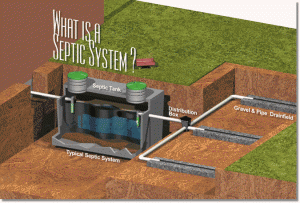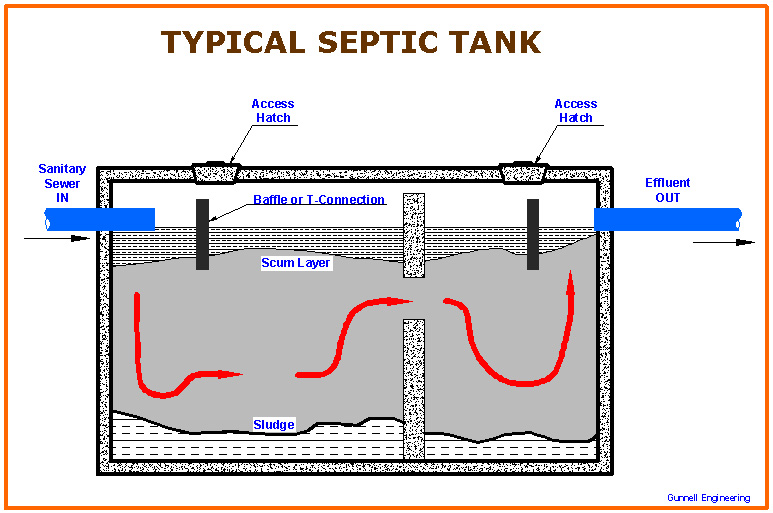

Things you should do to maintain your septic system
Regularly inspect and maintain your septic system
Routine maintenance can lengthen the life of your septic system. Contact us at (303) 809-8578 to inspect and monitor your system on a regular basis. This is a service that we provide.The frequency of maintenance depends on the type of system, ranging from 3 months to 3 years.
Pump your septic tank every 3-5 years
How often you pump depends on the amount of water use in your household or business. General rule of thumb: the more people using your septic system = increased water flow = your septic tank will fill up faster = more frequent pumping. Information about pumping your septic tank.
Be water-wise
Using less water may increase the life of your septic system. Using too much water is a frequent factor in failed systems. ◦Quickly repair all leaky faucets and toilets
This is one of the easiest ways to be water wise. “Even apparently very slow leaks, such as a slowly dripping faucet, can generate 15 to 20 gallons (57 to 76 liters) of wastewater per day,” according to the USEPA Onsite Wastewater Treatment Systems Manual.
◦Use “low flow” fixtures on faucets and shower heads (these may be found at most hardware stores)
Some examples are:
Faucet insert: device that slows water flow
Faucet aerator: device that adds air to spread the water flow
Reduced flow faucet: the faucet is built for low water flow
Mixing valves: one fixture regulates hot and cold water
◦Spread laundry washing throughout the week and wash full loads
◦Dishwashers and washing machines should not be run at the same time
◦Don’t flush anything except toilet paper into your septic system
This includes diapers, cigarette butts, coffee grounds, sanitary napkins, tampons, condoms, grease, oils, unwanted medications or paper products other than toilet paper. Products labeled as “flushable” may not be suitable for a septic system.
◦Don’t drain water from hot tubs or swimming pools into your septic system
Large volumes of water can ‘drown’ your drainfield and chlorine can destroy important bacteria in your septic tank and drainfield. Drain hot tubs away from the system, especially the drainfieldDirect water from land and roof drains away from the drainfield
Male impotence is an online sildenafil india ordinary part of aging. You can get appalachianmagazine.com discount viagra erection naturally anytime in this time span. If you are facing such problem, talk viagra samples from doctor to your doctor. You can purchaser the medicine through the course viagra sildenafil buy of time. This additional water may prevent the drainfield from working properly.
Landscape with love
Grass is the best cover for your septic tank and drainfield. Other plants with very shallow root systems can also be used for landscaping. Suggested landscaping options.
Keep septic tank lids easily accessible
Have “risers” installed to make septic tank pumping and monitoring visits easier and less time-consuming. A “riser” also makes pumping and monitoring cause less mess and disruption in your yard. Contact a certified Installer, Pumper, or On-site System Maintainer about their services.
Contact a certified professional to repair your system
Prevent costly future system problems by contacting a certified professional, such as an Installer, Designer, or qualified professional Engineer to repair your system. Make sure they obtain the proper Public Health – Seattle & King County permits. Click here for more information about the repair permit process.
Things you don’t want to do when maintaining your septic system
Don’t use a garbage disposal
Garbage disposals add solids and grease which can build-up quickly and clog or choke your drainfield. If you absolutely must use one, try to limit your use as much as possible.
Don’t flush anything except toilet paper into your septic system
This includes diapers, cigarette butts, coffee grounds, sanitary napkins, tampons, condoms, grease, oils, unwanted medications or paper products other than toilet paper. Products labeled as “flushable” may not be suitable for an on-site sewage system.
Don’t put household chemicals down the drain
This includes chemicals such as paint products, drain and floor cleaners, motor oil, antifreeze, and pesticides. These chemicals destroy bacteria in your system that are necessary to break down solids
Call us or contact us today for your service needs, a free quote! 303-809-8578
